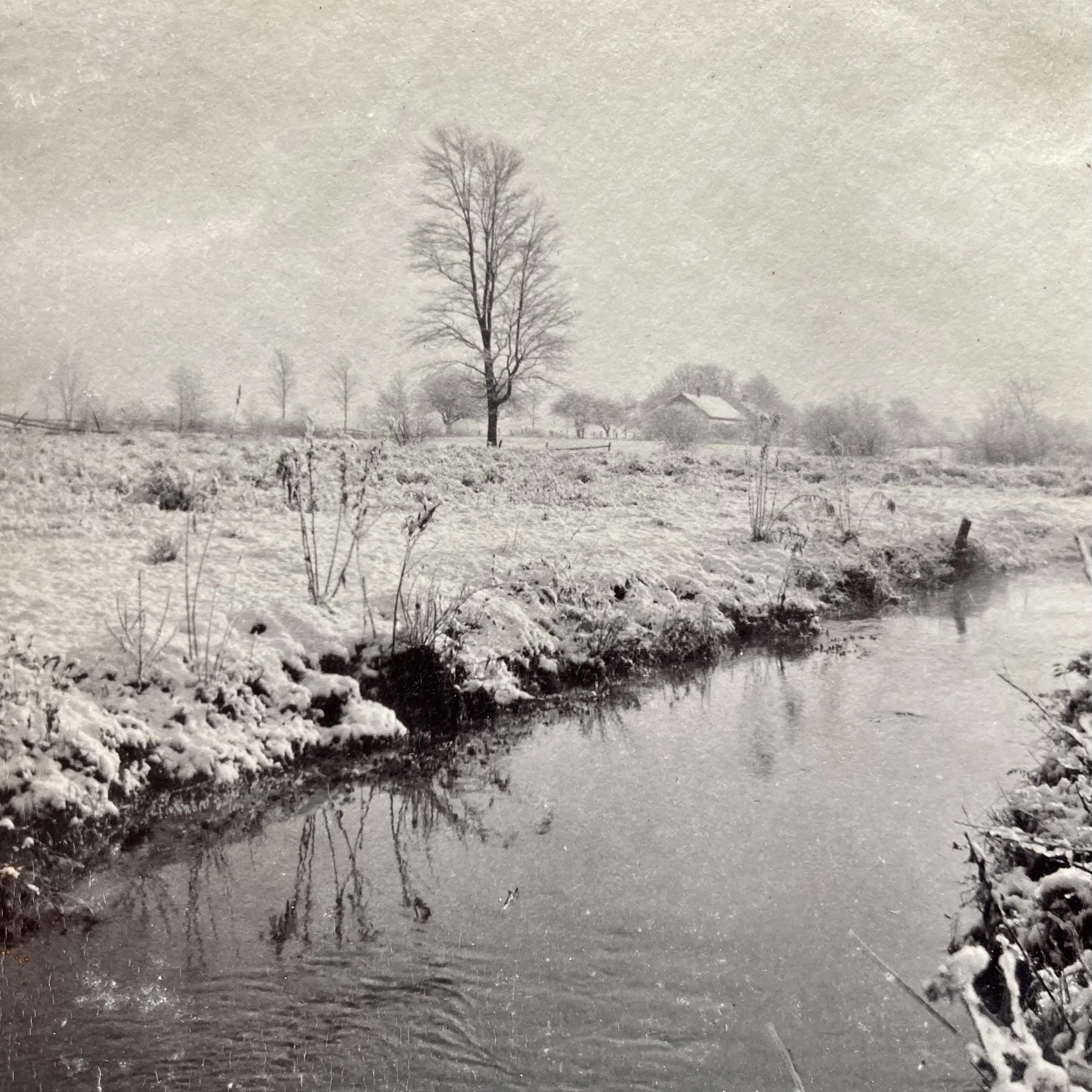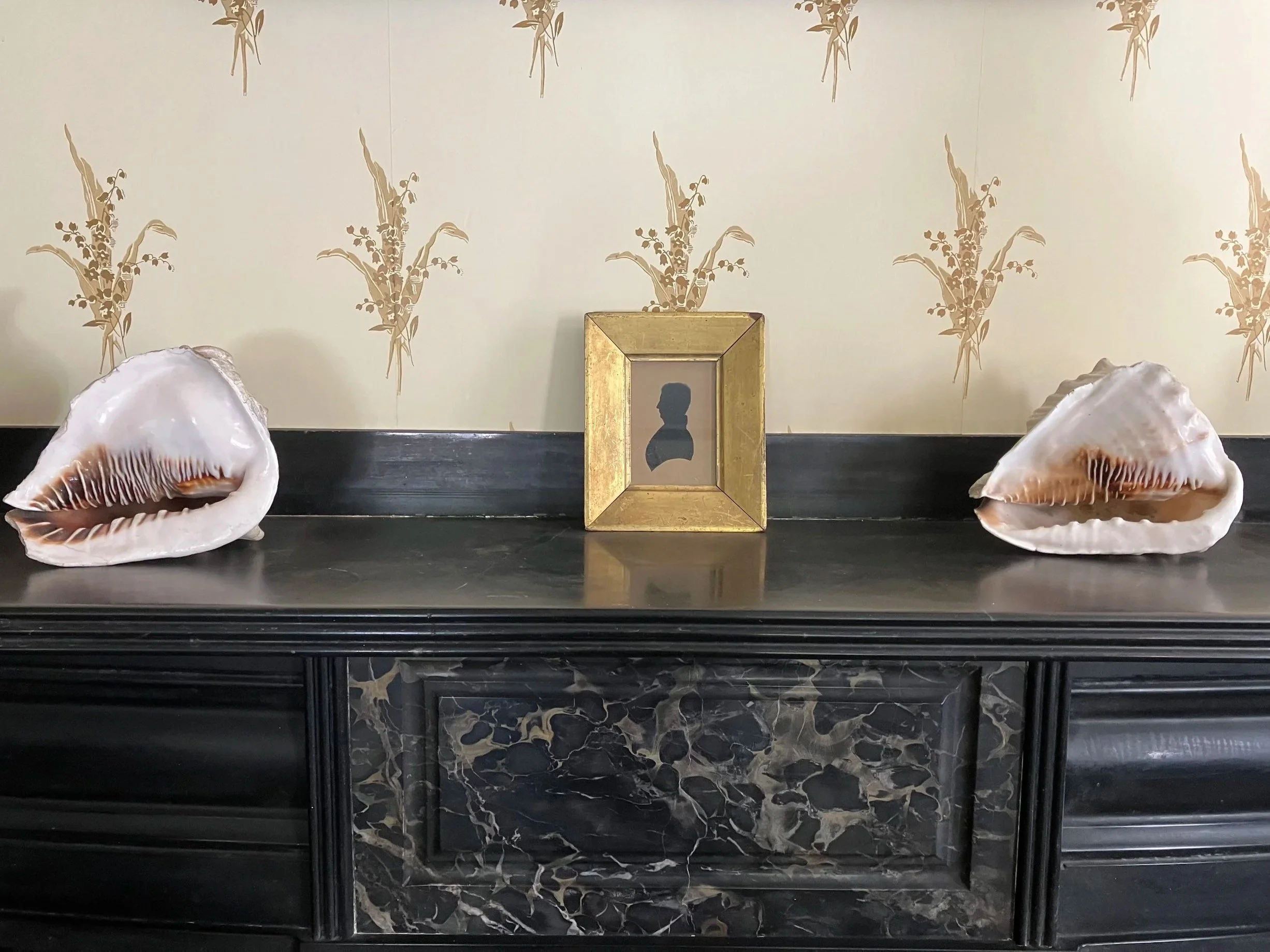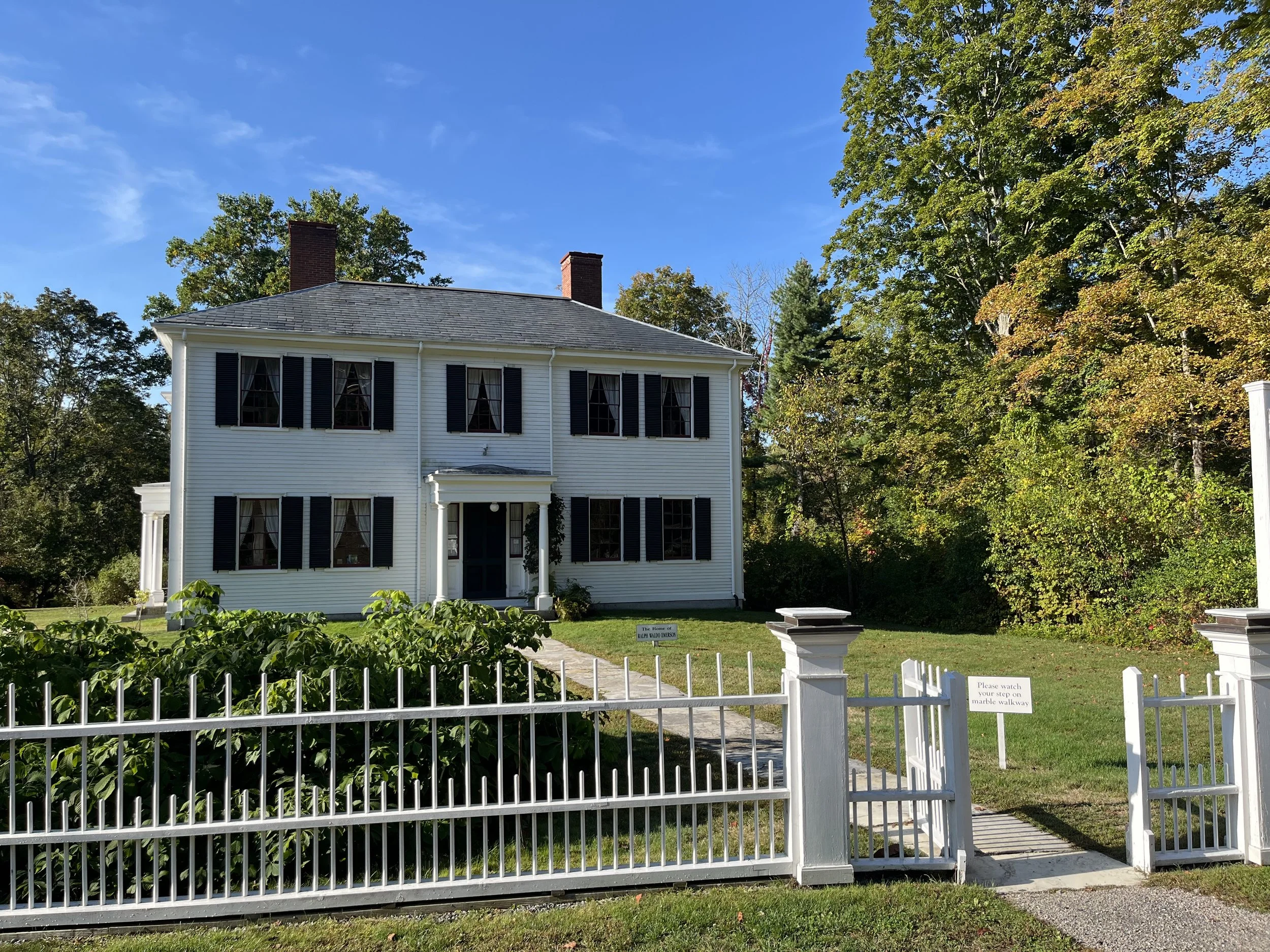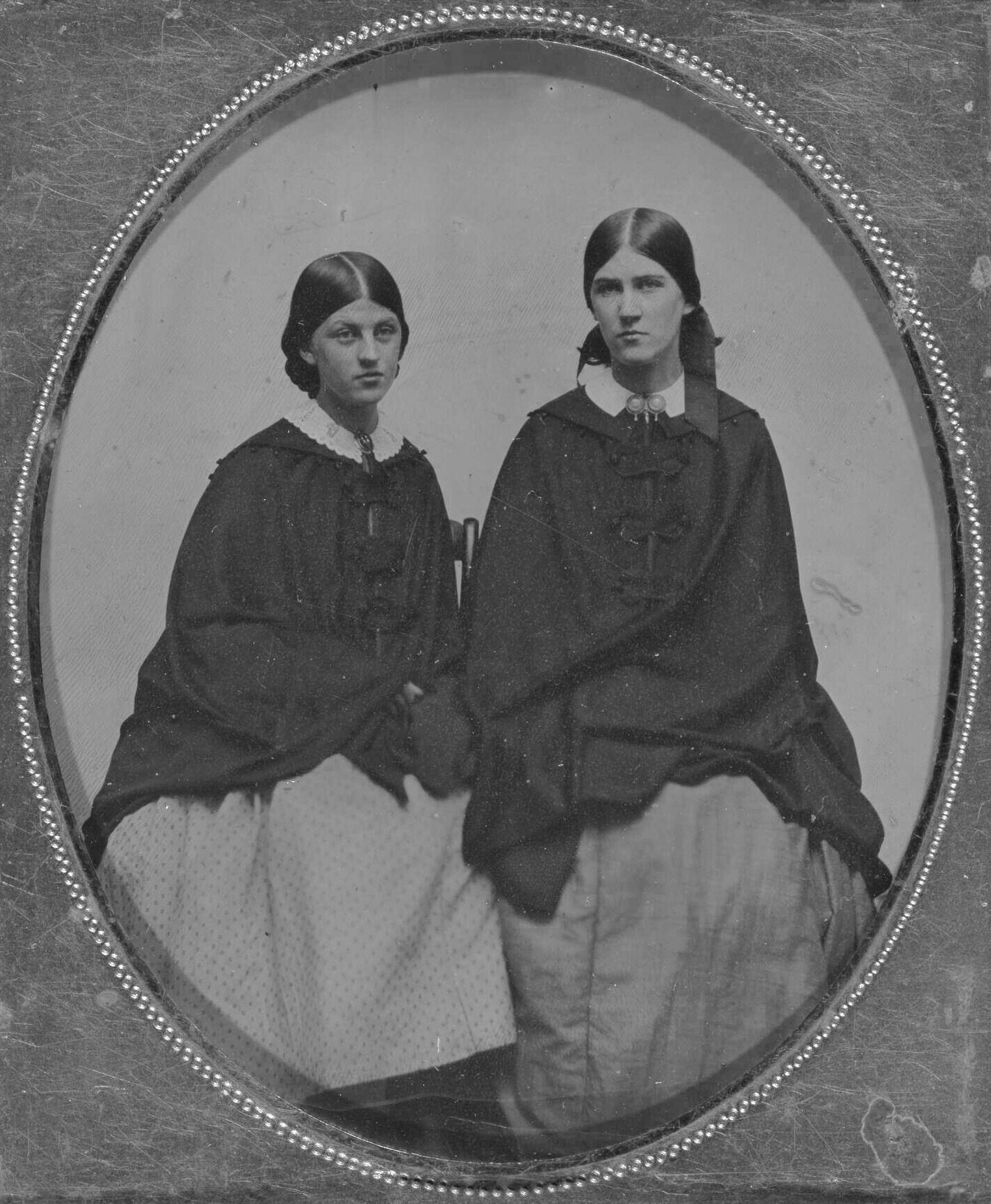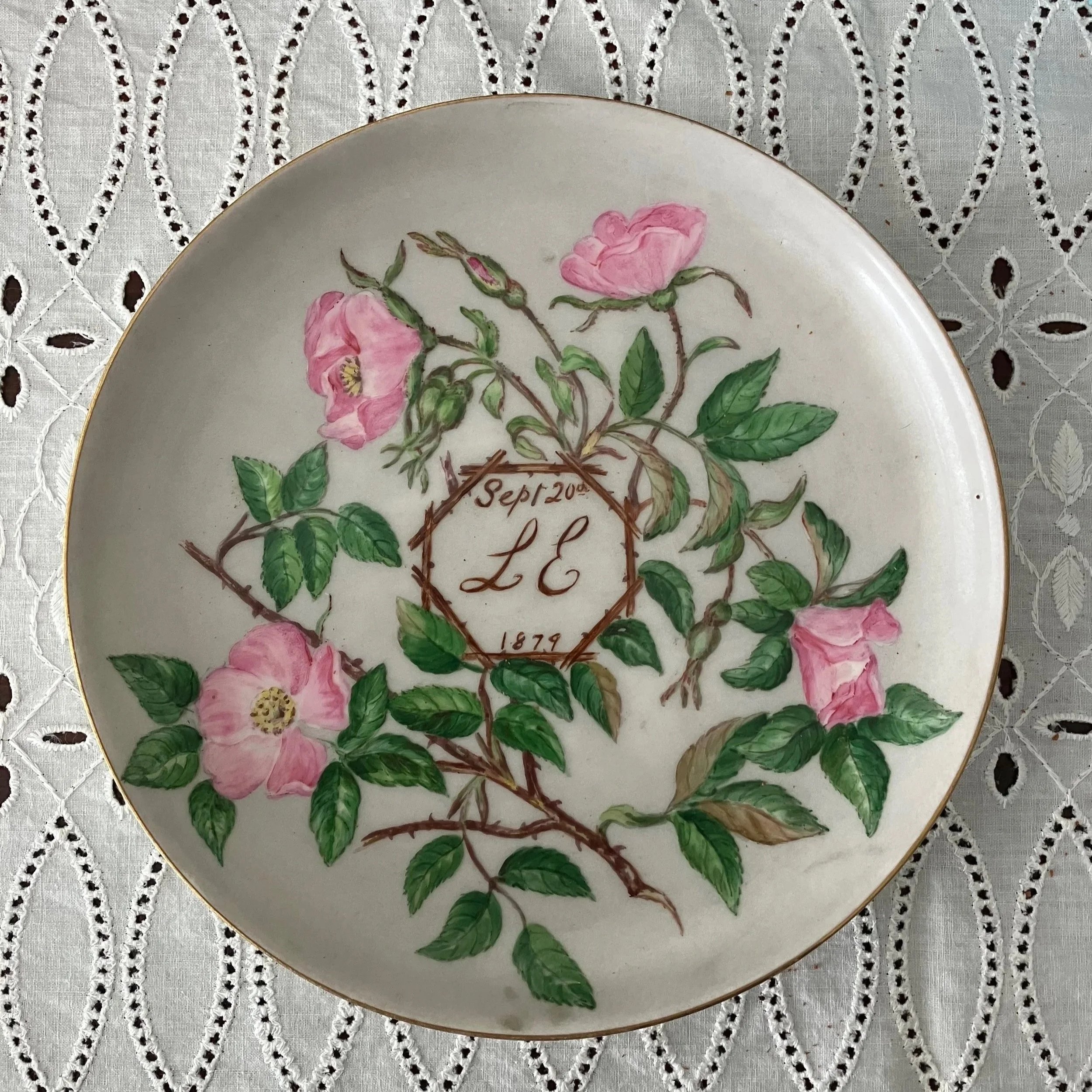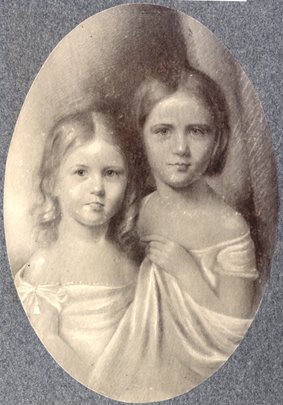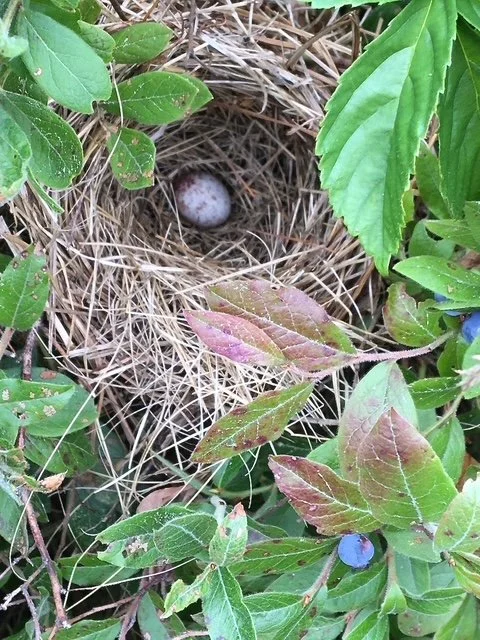
The Lyceum
A gathering place for engaging Emersonian content to educate & entertain.
Long-Ago Landscapes
Photos from an Emerson family album from the 1890s capture scenes from a Concord, MA winter over a century ago. Part of the greater Emerson House collection, this album is usually tucked away in a drawer and is being shared here for the first time.
“Sea-born Treasures”
A wintertime reflection on the origin of the seashells adorning several mantelpieces in the Emerson House in Concord, MA, and their connection to Ralph Waldo Emerson’s untimely loss of his younger brothers Edward and Charles.
Thanks for a Great 2025 Season!
Highlights from the 2025 visitors’ season at the Emerson House and a thank you to all who made it such a success.
Edith Emerson Forbes
A biographical profile of Ralph Waldo & Lidian’s third child, Edith Emerson, who married William Hathaway Forbes in 1865. Sociable and well-organized, Edith continued to play a vital role in her parents’ and siblings’ lives after marriage, including overseeing the repairs of the family home after the 1872 fire and working with her father on assembling the poetry anthology Parnassus.
Remarkable Lidian
Celebrating the occasion of Lidian Jackson Emerson’s 223rd birthday and her inclusion in Randall Fuller’s recent group biography, Bright Circle: Five Remarkable Women in the Age of Transcendentalism.
Emerson’s Daughters: A Review and Special Event
Ellen Tucker Emerson and Edith Emerson Forbes’ lives are often treated as a footnote to their famous father, Ralph Waldo Emerson. Kate Culkin’s recent dual biography, Emerson’s Daughters: Ellen Tucker Emerson, Edith Emerson Forbes, and Their Family Legacy (University of Massachusetts Press, 2025) brings these women’s stories to the fore, inviting interest in Ellen and Edith for their own sakes. Join Culkin at the Emerson House on Sunday, September 28, 2025 for an author’s tour of the special exhibition celebrating the sisters’ lives.
Emerson’s Daughters
Kate Culkin’s new book, Emerson’s Daughters: Ellen Tucker Emerson, Edith Emerson Forbes, and Their Family Legacy (University of Massachusetts Press, July 2025), is a dual biography of the sisters who worked behind the scenes to shape the image of their famous father. In honor of the book’s release this month, the Emerson House will be showcasing items from our Ellen and Edith collections, some of which will be on display to the public for the first time.
Discover Concord
To read more about the people and places of Concord, Massachusetts, we invite you to explore the current and back issues of Discover Concord, a visitor-focused magazine available in print and online. The Emersons and their friends are frequent subjects of articles, some of which are penned by our own Emerson House guides.
Opening Lines for Earth Day
This year, the spring reopening of the Emerson House coincides with the 55th anniversary of Earth Day. In promoting environmental protection and celebrating the web of life, Earth Day reflects Ralph Waldo Emerson’s own reverence for nature—a common theme in his writings. Today, and beyond, we find inspiration in Emerson’s poems—his words exalting the wisdom of a bee; the beauty of a wildflower; the sentience of a tree.
“Their flag to April’s breeze unfurled”: Emerson and April 19th
The opening battle in America’s war for independence took place at Concord’s Old North Bridge on April 19, 1775—an event later memorialized by Emerson as the “shot heard round the world.” On the 250th anniversary of that fateful day, we look back at the Emerson family’s connections to April 19th: from Ralph Waldo Emerson’s grandparents witnessing those first shots in 1775, to his role in Concord’s centennial celebrations in 1875.
A Rare Film Find
A 15-minute silent film about Ralph Waldo Emerson from the 1920s. Selections from his life and writings are illustrated with black-and-white footage from around the town of Concord, Massachusetts, including the Old Manse, the Emerson House, Sleepy Hollow Cemetery, and the Old North Bridge.
Emerson’s Study
When the Ralph Waldo Emerson Memorial Association (RWEMA) took ownership of the Emerson House in 1930 and turned it into a seasonal museum, the original contents of Emerson’s study were moved across the street to a replica in the Concord Museum to preserve year-round access for visitors. Today, both can be visited. In 2020, the Concord Museum produced a short video tour of Emerson’s home study, discussing its importance both to Emerson and as the intellectual center of mid-19th century America.

